If God is so good and powerful, why is there so much evil in our world? Although you might retort, “It’s because humanity fell into sin and we are all suffering the consequences.” Such an answer merely pushes the question back one step, since God is the one who determined just how fallen our world would become once sin entered the picture. Why doesn’t he allow more suffering or less? What are his aims in having the world be how it actually is? Why doesn’t he intervene more to stop harm? Brandon Duke has wrestled with this question extensively and today he’ll provide a lay of the land to help you think through the issue. He breaks up the problem into three categories (1) human evil, (2) natural suffering, and (3) God’s hiddenness. Today he’ll cover a number of presuppositions about God’s knowledge that play into how we approach evil as well as what God’s objectives are that he ultimately will bring to pass.

Here is the full John Hick quote that Duke paraphrased in this episode:
“We can imagine a paradise in which no one can ever come to any harm. Instead of having its own fixed structure, the world would be plastic to human wishes. Or perhaps the world would have a fixed structure, and hence the possibility of damage and pain, but a structure that is whenever necessary suspended or adjusted by special divine action to avoid human pain. Thus, for example, in such a miraculously pain-free world, one who falls accidentally from a high building would presumably float unharmed to the ground; bullets would become insubstantial when fired at a human body; poison would cease to be poison; water to drown, and so on. We can at least begin to imagine such a world, but… a world in which there can be no pain or suffering would also be one without moral choices and hence no possibility of moral growth and development. For in a situation in which no one can ever suffer injury or be liable to pain or suffering, no distinction would exist between right and wrong action. No action would be morally wrong, because no actions could ever have harmful consequences; likewise, no action would be morally right in contrast to wrong. Whatever the values of such a world, its structure would not serve the purpose of allowing its inhabitants to develop from self regarding animality to self giving love.”
—— Books——
- God and the Problem of Evil: Five Views by Chad Meister, James Dew Jr.
- Divine Foreknowledge: Four Views by Gregory Boyd, David Hunt, William Craig, Paul Helm
- The Triumph of God over Evil by William Hasker
- Four Views on Divine Providence by Paul Helseth, William Craig, Ron Highfield, Gregory Boyd
- Divine Hiddenness: New Essays by Daniel Howard-Snyder, Paul Moser
—— Links ——
- Get in touch with Brandon Duke on his website: TruthBorn
- Check out Duke’s videos at the Unitarian Christian Alliance YouTube Channel
- Watch Duke’s Trinity debate
- Also check out this six part series on various theories of divine foreknowledge, including Calvinism, Arminianism, and Open Theism.
- More episodes and posts about the problem of evil and suffering
- If you’d like to support Restitutio, you can donate here.
- Intro music: Good Vibes by MBB Attribution-ShareAlike 3.0 Unported (CC BY-SA 3.0) Free Download / Stream: Music promoted by Audio Library

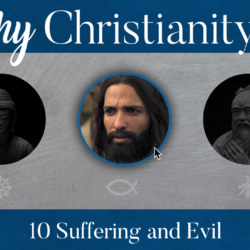
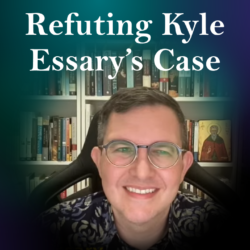
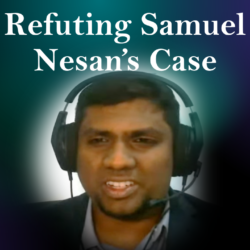
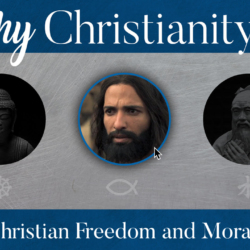
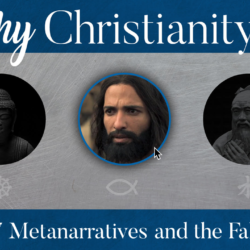

Thank you Sean for the opportunity to participate in a podcast I love. The podcast has contributed to my thinking on this issue (as it has on many other issues), and it was a thrill to try to give back. Hopefully some of the framework, or references, or ideas, are helpful to those who hear it, and I also look forward to any critical feedback, as I am always refining and seeking a better understanding of God, his design, and his sovereignty.
As a shameless plug, you can go to truthborn.org and hear another presentation I gave recently on this same subject, to a Christian virtual fellowship. Maybe it will supplement the conversation with Sean.
I couldn’t find your video, Brandon – or the website.
John Bradley:
Sorry, the new site hasn’t worked it’s way up the Google searches yet.
The website is http://www.truthborn.org and the recording I mentioned is available at http://www.truthborn.org/?p=339
Much of the content is the same, as the interview here, but the context is a bit different as it was a teaching for a virtual fellowship.
Thanks, Brandon. God bless you!
Nice interview. I’d say God can’t stop suffering singlehandedly, but I like the direction you’re going in this interview. I’ll add it to the Center for Open and Relational Theology News.
Thomas Jay Oord
What’s wrong with the scriptural view? Eccl 9:2, 11, etc.
Humanistic philosophy, especially from Irenaean theodicy, is an assault on the sufficiency of scripture.
Hey, Julio :
It depends what you mean by ‘the Scriptural view’ ? Divine revelation is increasingly progressive, as one goes through the Bible. In the New Testament there is more information than is contained in the Old Testament on several important theological issues – for example, on the personality of the angelic being called ‘the devil’ (Greek : ‘ho diabolos’; Job 1:6, in the Septuagint text) = ‘the satan’ (Hebrew : ‘hasatan’ ; Job 1:6, in the Masoretic text). This increment in knowledge is given in the light of the solution – Who is Jesus the Messiah.
Have a good day, and God bless you.
Divine revelation when it comes to this issue is what exactly?
And what is your past and current church affiliation?
Julio,
For us not engage with philosophy is just to be unaware of which philosophical positions we hold. We bring reasoning to all of our reading of the scriptures, to comprehend them, to harmonize them, contextualize them, and apply them.
If there’s a particular thing I’ve said in the interview that conflicts with something you read from scripture, I’d be happy to hear about it and discuss it.
Mr Duke
I refer to Christian philosophy not church fathers.
There’s more than a grain of truth in your comment, Brandon. However, we have, as far as we can, to minimize any of our various, acquired personal biases, and adopt an intellectually honest attitude in an attempt to study the Scriptures in their historical contexts – and try to understand them as the inspired biblical authors originally intended them to be understood.
I love the passages you reference Julio, because they perfectly represent the kind of polices God is following in governing his world justly. He is not a respected of persons, and allows the rain to fall on all.
The kind of theodicy I am trying to develop takes exactly the passages you reference as control texts, in contrast to the meticulous providence of reformed theology.
I agree, our thinking must be grounded in God’s teaching, both in special revelation and general revelation, and that exactly what I am trying to do.
Is there something I described in the interview that you think conflicts with scripture? That would certainly be a concern for me, and I would be glad to get constructive feedback.
Regarding the scriptural evidence that God follows loving and wise policies, check out my comment on Jesus’ teaching on theodicy vis-a-vie the tower of Siloam in Luke 13:4 in the linked audio.
http://www.truthborn.org/?p=339
https://en.wikipedia.org/wiki/Tower_of_Siloam
God bless you.
In response : Progressive Divine revelation as we come into increased light of the New Testament, sir. I’ve already given you one example.
I’m an independent Bible student – who recognizes fellow Christians by the evidence of spiritual fruit, based upon a profession of faith in the risen Christ Jesus, as Messianic Lord, Saviour and coming King on earth. I’m not really into human ‘denominations, sects and parties’. Are you a ‘denomination man’, Julio ?
John,
I was asking about your former church/denom affiliations not currently.
And I am not a denomination.
Hey, Julio,
God bless you.
Are you zealous denominational man ? What’s your past church/denominal affiliations ?
Here’s my story :
By sheer Divine grace, I had a profound spiritual experience of God through prayer, even before I became a committed Christian. I later got converted to Christ as a repentant sinner, via a Gospel tract. Before then, I didn’t know any of the real Gospel basics of Christianity. When I became a Christian, I didn’t know theology even existed – or that Christians fundamentally doctrinally differed from each other. I naively thought that all Christians believed the same things. Consequently, as an Englishman, I initially started off my theological and spiritual pilgrimage in ‘Church of England’ congregations, but was later introduced by friends to an ‘Assemblies of God, Pentecostal Church’ – where I afterwards got water baptized (but I never ‘spoke in tongues’.). Through my subsequent biblical and theological studies, I’ve now become Unitarian in theology, but I now no longer subscribe to any one particular Christian denomination, sect or party. My main focus is on being a member of the Spiritual Body of Christ.
What’s your story ?
Hi John.
I’m a Unitarian living in London. It would be good to connect with you. Maybe Sean can email you my email address.